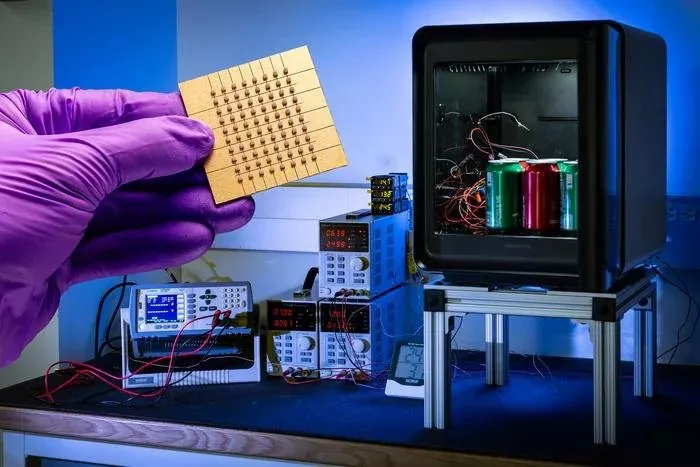Refrigerators and air conditioners have long been essential to modern living, yet the core technology behind these cooling systems has remained largely unchanged for decades. Now, a groundbreaking collaboration between Samsung and researchers at the Johns Hopkins Applied Physics Laboratory (APL) promises to revolutionize cooling by developing solid-state, thermoelectric refrigeration that could eventually replace traditional compressor-based systems.
Today, most cooling devices worldwide rely on compressor-based refrigeration. These systems function by circulating chemical refrigerants through coils to absorb and release heat. While effective, this approach is bulky, energy-intensive, and contributes to environmental harm due to the use of greenhouse gases. With global temperatures rising and demand for cooling soaring, the need for a sustainable and efficient alternative has become critical.
Thermoelectric cooling offers a promising solution. Rather than compressors and refrigerants, thermoelectric devices transfer heat through electrons flowing within engineered semiconductor materials. This method eliminates moving parts and harmful chemicals, enabling compact, scalable, and potentially more energy-efficient cooling solutions.
Historically, thermoelectric cooling has struggled to achieve the efficiency levels required to challenge compressor-based systems—until now. The breakthrough comes in the form of Controlled Hierarchically Engineered Superlattice Structures (CHESS), a cutting-edge nanoengineered thin-film technology developed by APL researchers.
Originally created for national security and noninvasive medical cooling applications, CHESS is now being adapted in partnership with Samsung for broader use in refrigeration.
“This represents a major advance in cooling technology,” said Rama Venkatasubramanian, chief technologist for thermoelectrics at APL. “It paves the way for translating recent material science breakthroughs into practical, large-scale, energy-efficient refrigeration systems.”
Testing reveals that CHESS-enhanced modules deliver twice the efficiency of conventional bulk thermoelectric materials at room temperature. When compared with existing compressor systems, these modules are 75% more efficient at the module level and 70% more efficient in fully integrated refrigeration units.
A particularly notable advantage is the minimal amount of material required. Each cooling module uses just 0.003 cubic centimeters of CHESS material—about the size of a grain of sand—making the technology both cost-effective and scalable.
The researchers manufactured these sophisticated nano-materials using metal-organic chemical vapor deposition (MOCVD), a well-established technique commonly employed in the solar and LED industries.
“We leveraged MOCVD for producing CHESS materials,” explained Jon Pierce, senior research engineer at APL. “This method is scalable, cost-efficient, and suitable for high-volume production.”
Looking forward, the team envisions that this thin-film thermoelectric technology could scale in a manner similar to lithium-ion batteries—starting from small consumer devices and eventually expanding to large infrastructure projects, such as building HVAC systems.
Related topics:

